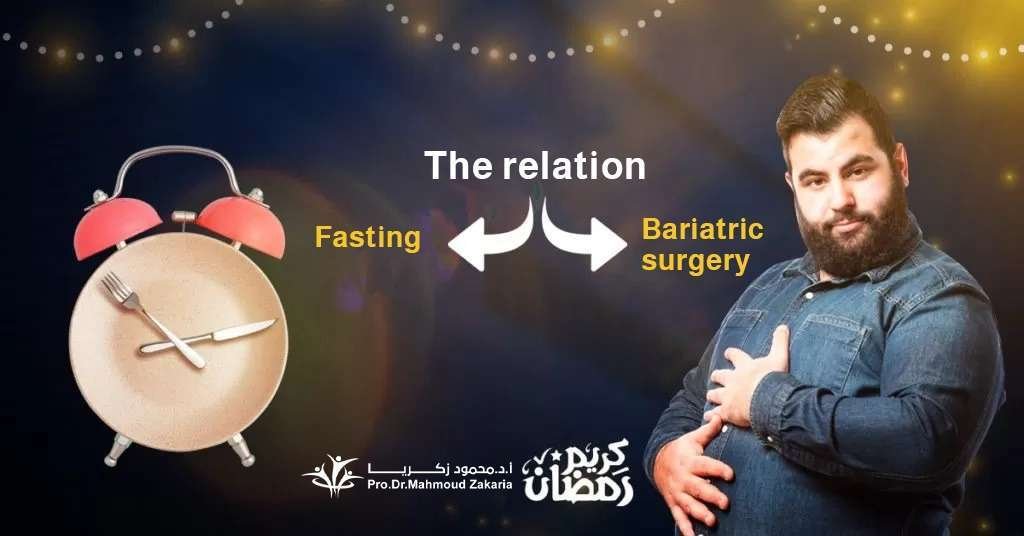Fasting and obesity surgery
Fasting is an opportunity to get rid of bad eating habits for obese people, as well as for those who have undergone obesity surgeries, but the small size of the stomach and the short breakfast time may impede access to the necessary nutrients for the body.
Is fasting after an obesity surgery difficult?
Fasting after obesity surgeries is much easier than fasting before the operation, because the patient does not feel hungry after the operation, however the small size of the stomach after the sleeve gastrectomy and gastric bypass causes some problems with fasting.
- The stomach after the sleeve gastrectomy or bypass, cannot accept large quantities of food or drink at once or quickly, especially in the first months after the operation considering the difference between one person and another, as one person’s stomach may accept a larger quantity than another’s stomach due to its different nature (Anatomical and Kinetic).
- A person needs to drink about 2 liters of fluids daily. The patient may find it difficult to drink this quantity from dusk to dawn.
Not drinking enough fluid leads the body to dehydration, venous thrombosis, as well as kidney and gallbladder stones.
- The presence of stomach acid directly on the stomach wall for a long time during fasting leads to stomach contraction. Therefore, you must start breakfast with a warm drink to relax your stomach. Also, acidity medication (Pantoloc 40 or Nexium 40) should be taken after sunset and before dawn, especially during fasting in the first year after Bariatric surgeries.
- An increased risk of dumping syndrome, especially for those who have undergone gastric bypass, causes a fast heartbeat, dizziness, and body tremors that usually occur when eating sweets, as well as fried and fatty foods.

When is it possible to fast after the surgery?
It is possible to fast two weeks after the operation, if you drink at least 2 liters of fluid from sunset until dawn, whilst keeping the urine a light yellow color and not dark.
If you are unable to drink 2 liters of fluid a day, fasting is not recommended at all.
Fasting instructions after sleeve gastrectomy and gastric bypass
- Start breakfast with a Pantoloc 40 or Nexium 40 tablet, followed by a warm drink like skimmed milk with 3 dates.
- Eat a small meal half an hour after Al Maghreb.
- Eat another meal between sunset and dawn.
- Delay Suhoor until before dawn.
- Take a Pantoloc 40 or Nexium 40 tablet before dawn.
- Drink at least 2 liters of fluids between sunset and dawn.
- Avoid fizzy drinks.
- Reduce your intake of sweets and fatty foods.
- Vitamins can be taken two hours after breakfast.
After undergoing the sleeve gastrectomy or gastric bypass, is it possible to exercise during Ramadan?
Yes, it is possible, but if you do not strain your body. The best time to exercise is two hours after breakfast, and we never recommend exercising before breakfast to avoid dehydration. We also recommend walking and not straining your body this month.
Calories of the most important Ramadan foods:
One date = 25 calories
A cup of yogurt = 100 calories.
4 tablespoons of beans + spoonful of oil = 250 calories.
A small piece of kunafa = 450 calories.
Cucumbers, lettuce, spinach, and watermelon, as examples, contain low numbers of calories.
Ramadan Kareem!
Related Posts: What is Mini Sleeve Gastrectomy?
Banded Sleeve Gastrectomy for who?

